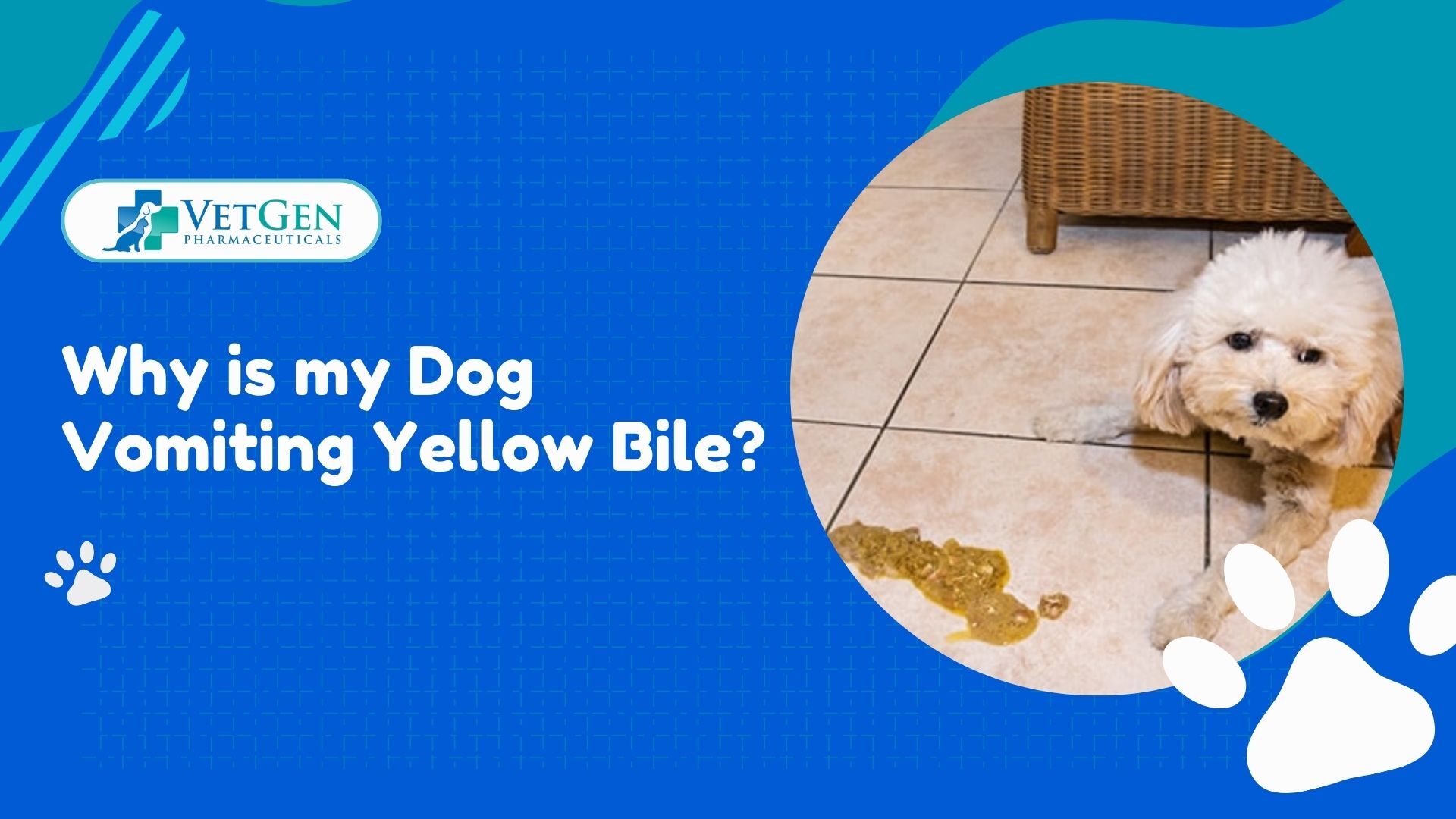The liver produces yellow bile which gets stored inside the gallbladder. Yellow bile assists in both fat decomposition and stomach acid neutralization throughout the small intestine. If a dog vomits up yellow bile, that often means that the stomach is empty and the bile irritates the lining of the stomach. The medical term for this condition is Bilious Vomiting Syndrome.
By learning about bile vomiting causes, you can protect your dog from discomfort and maintain their digestive system health at its best performance level.
Common Causes of Yellow Bile Vomiting
Dogs can be the victim of yellow bile vomiting due to an empty stomach, diet, infection, or an underlying condition. Identifying the cause early will help prevent discomfort and get proper treatment.
1. Empty Stomach
Bile vomiting is a common occurrence in dogs that don’t eat for long periods. Bile accumulates in an empty stomach, and this irritation leads to vomiting. To prevent this, it can be useful to feed smaller, more frequent meals.
2. Dietary Indiscretion
Spoiled food, garbage, or foreign objects can upset a dog’s stomach, causing vomiting. This behavior, however, puts the dog at risk for gastrointestinal irritation and bile vomiting.
3. Food Allergies
Allergic reactions can be caused by certain ingredients that result in the triggering of GI inflammation and vomiting. A study found that food allergies in dogs can range from 1 to 2 percent, with beef, dairy, and wheat being the most common allergens.
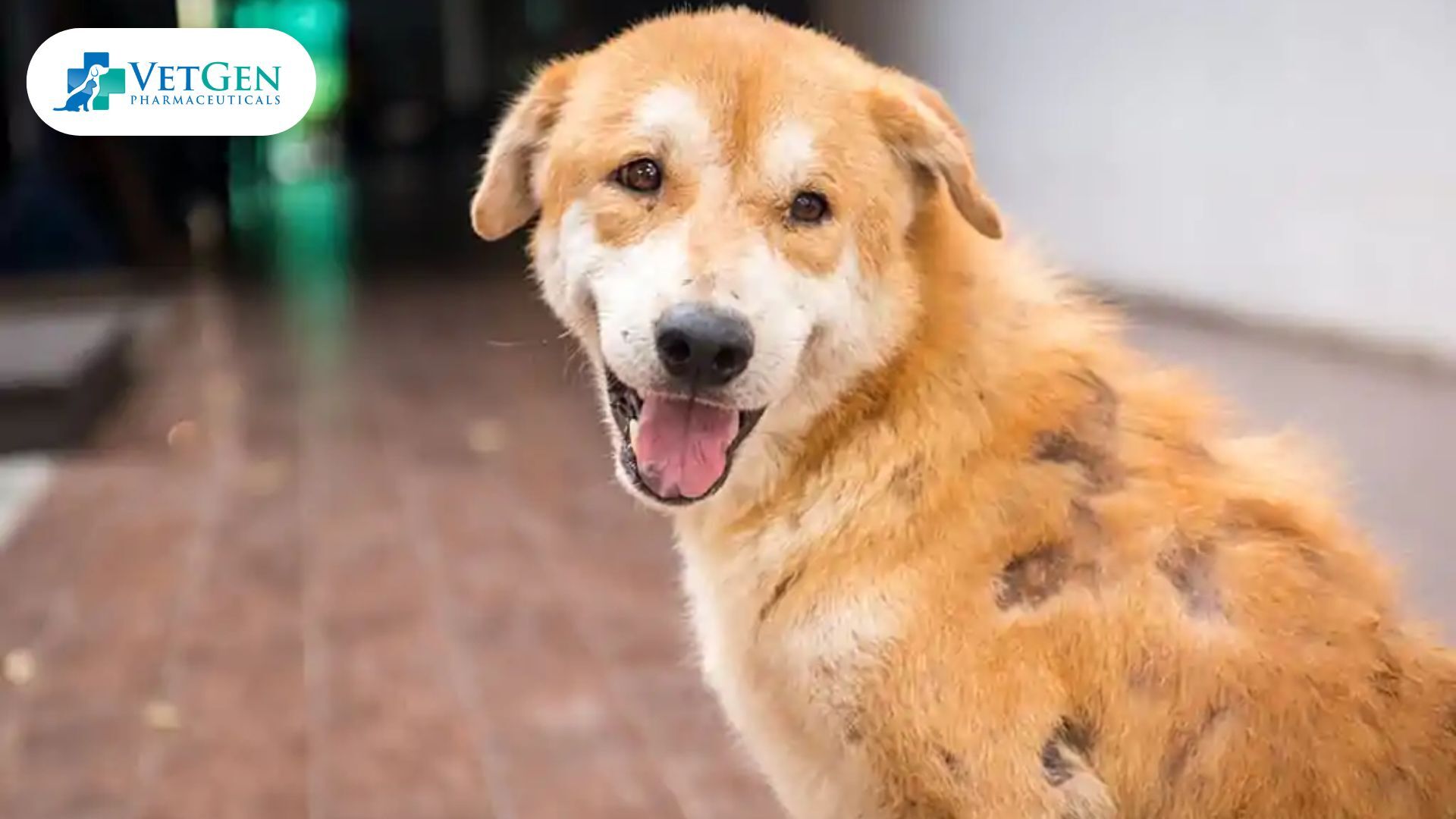
4. Intestinal Blockages
Obstructions in the digestive tract prevent food and liquids from passing normally, leading to vomiting. Common signs include abdominal pain, lethargy, and loss of appetite. Intestinal blockages often require surgical intervention.
5. Pancreatitis
Obstructions in the digestive tract prevent food and liquids from passing normally, leading to vomiting. Common signs include abdominal pain, lethargy, and loss of appetite. Intestinal blockages often require surgical intervention.
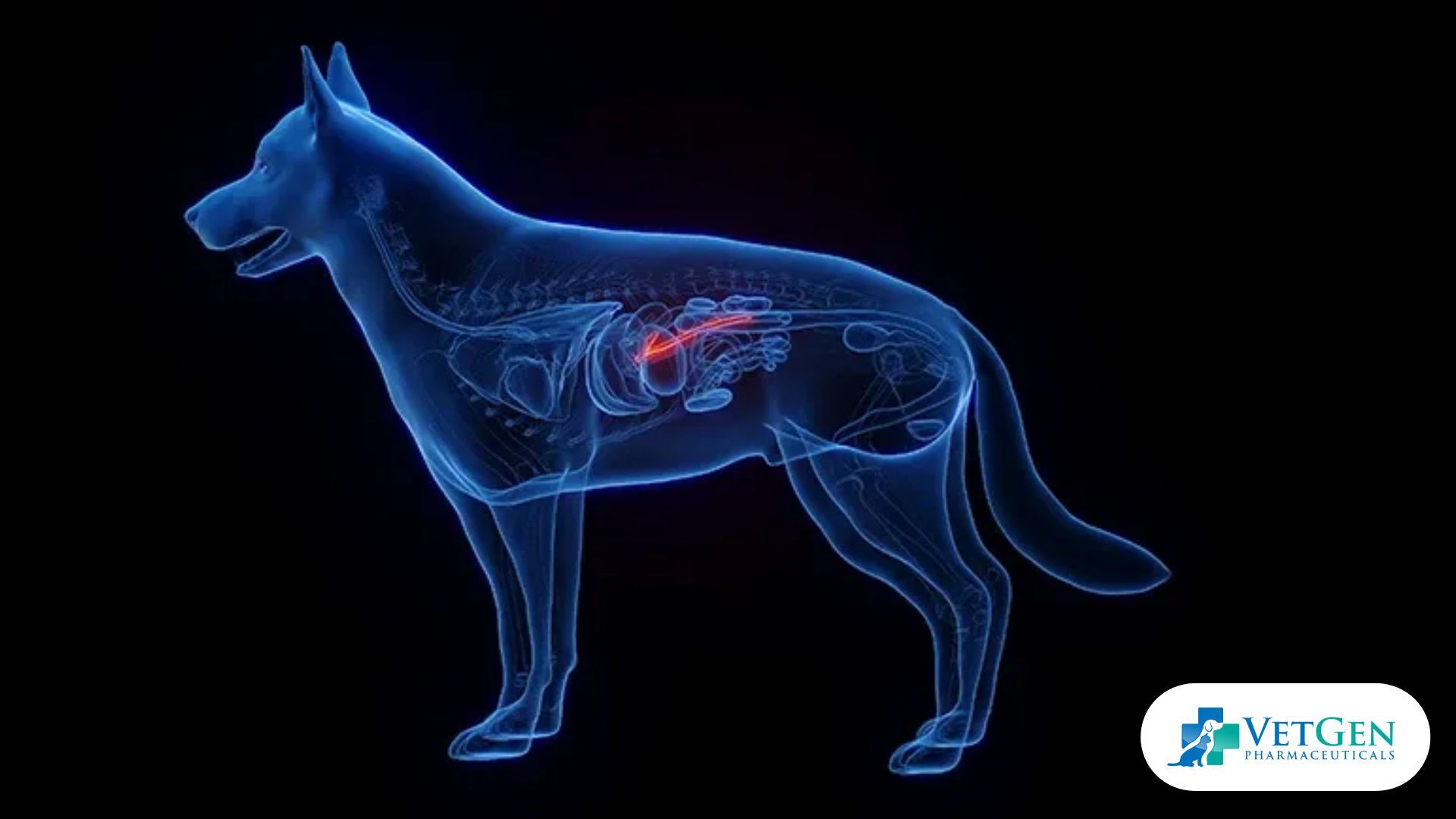
6. Parasites
Intestinal parasites like roundworms or giardia can irritate the gastrointestinal tract, leading to vomiting. Regular deworming and fecal examinations are essential preventive measures.
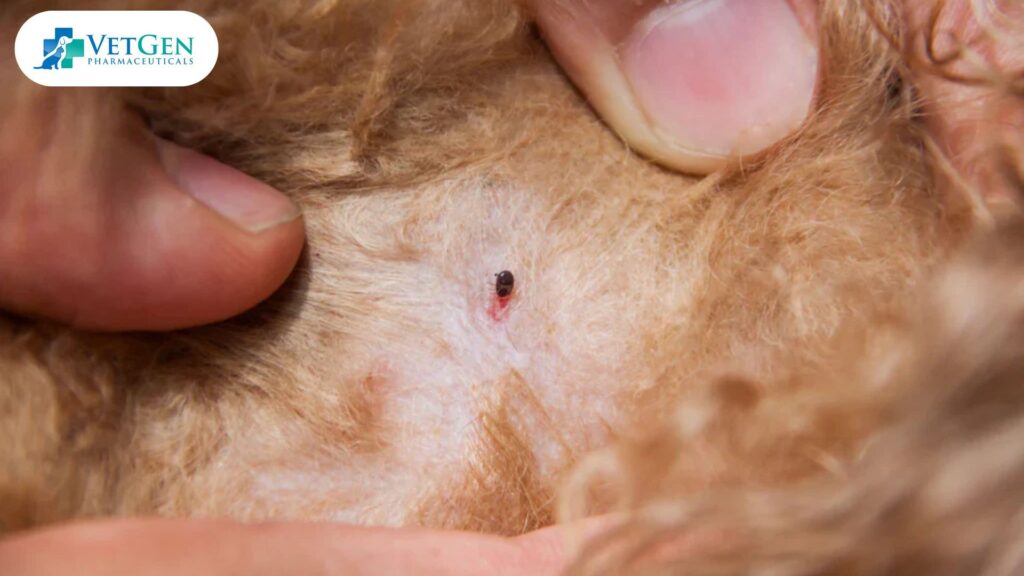
7. Toxin Exposure
Ingesting toxic substances such as certain plants, chemicals, or spoiled food can lead to vomiting bile. Immediate veterinary attention is crucial in such cases.
How to Soothe Your Dog’s Stomach After Vomiting
After your dog vomits yellow bile, it’s important to help their stomach recover. Start by offering small amounts of water to prevent dehydration. Wait a few hours before giving food, then introduce a bland diet like boiled chicken and rice.
Avoid rich, fatty, or spicy foods that may trigger further irritation. Monitor your dog’s behavior and energy levels. If they continue vomiting, seem weak, or refuse food, consult a vet immediately.
Gradually reintroduce their regular diet over a few days to avoid further stomach upset. Proper care and attention can help your dog recover quickly and stay healthy.
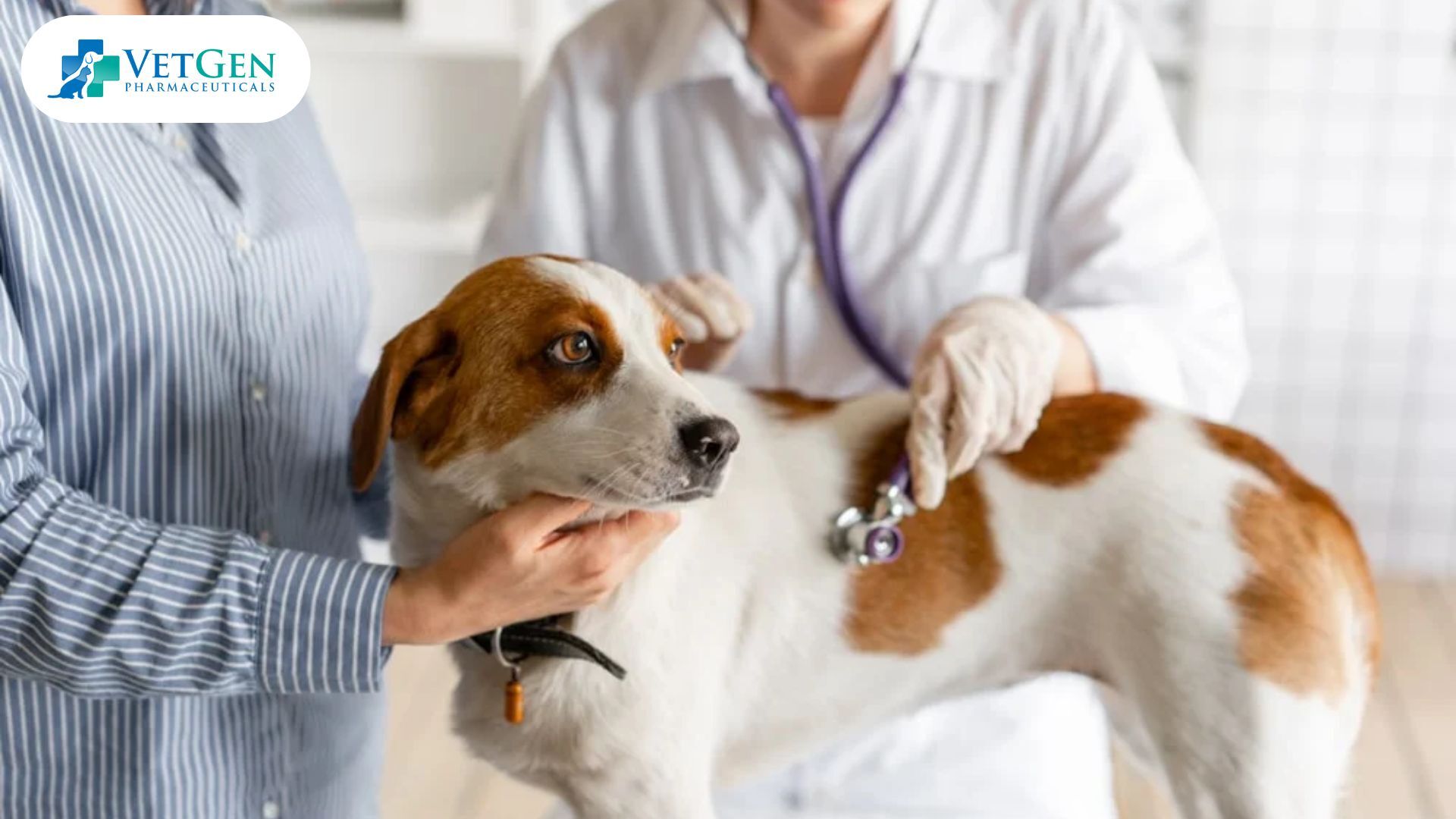
When to Seek Veterinary Care
While occasional bile vomiting may not be alarming, frequent episodes warrant professional evaluation. Consult a veterinarian if your dog exhibits:
- Persistent vomiting
- Lethargy
- Abdominal pain
- Diarrhea
- Loss of appetite
- Signs of dehydration
These symptoms could indicate underlying conditions requiring medical intervention.
Preventive Measures
Preventing yellow bile vomiting in dogs involves proper feeding schedules, a balanced diet, regular deworming, and avoiding toxins. Routine vet check-ups help detect underlying issues early, ensuring your dog stays healthy and comfortable.
1. Adjust Feeding Schedules
Providing smaller, more frequent meals can prevent the stomach from being empty, reducing bile accumulation and vomiting.
2. Dietary Management
Ensure your dog consumes a balanced diet appropriate for their age, size, and health status. Avoid sudden changes in diet, and refrain from giving table scraps or allowing access to garbage.
3. Regular Deworming
Maintain a regular deworming schedule as recommended by your veterinarian to prevent parasitic infections that can cause gastrointestinal issues.
4. Monitor for Toxins
Keep hazardous substances, including certain plants, chemicals, and human foods, out of your dog’s reach to prevent accidental ingestion.
5. Routine Veterinary Check-ups
Regular veterinary visits can help detect and address health issues before they become severe.
Treatment Options
Treatment depends on the underlying cause of the vomiting. For mild cases related to an empty stomach, adjusting feeding times may suffice. In cases of dietary indiscretion, withholding food for 12-24 hours, followed by a bland diet, can allow the stomach to settle. Always reintroduce regular food gradually.
If food allergies are suspected, an elimination diet under veterinary supervision can help identify and eliminate the offending ingredient. In cases of intestinal blockages, surgical intervention may be necessary to remove the obstruction. Pancreatitis often requires hospitalization, with treatments including fluid therapy, pain management, and dietary modifications.
For parasitic infections, appropriate deworming medications will be prescribed. In cases of toxin exposure, immediate veterinary care is essential, and treatment will vary based on the toxin ingested.
Conclusion
While occasional vomiting of yellow bile in dogs can be a normal occurrence, frequent episodes may indicate underlying health issues that require attention. Understanding the potential causes and implementing preventive measures can help maintain your dog’s digestive health. Always consult with a veterinarian for an accurate diagnosis and appropriate treatment plan tailored to your dog’s specific needs.
Visit VetGen Pharmaceuticals for dog-related information to keep your pet healthy and thriving. Explore our blogs to find the right solutions for your canine companion.
Frequently Asked Questions
Should I be concerned if my dog throws up yellow liquid?
Yellow vomit in small amounts generally does not require concern but repeated vomiting suggests a hidden medical issue. The causes of vomiting stem from an empty stomach and dietary difficulties as well as health problems which might exist. Get veterinary help for persistent vomiting especially when accompanied by weakness and diarrhea or refusal to eat.
Does yellow vomit mean the dog is hungry?
Yes, vomiting yellow bile often happens when a dog’s stomach is empty for too long. The bile irritates the stomach lining, causing nausea. Feeding smaller, more frequent meals can help prevent this issue. If vomiting continues, consult a vet to rule out other conditions.
What can I give my dog to stop vomiting?
Offer small amounts of water to prevent dehydration. A bland diet of boiled chicken and rice can help settle the stomach. Avoid giving treats or rich foods. If vomiting persists, seek veterinary care for proper diagnosis and treatment.

